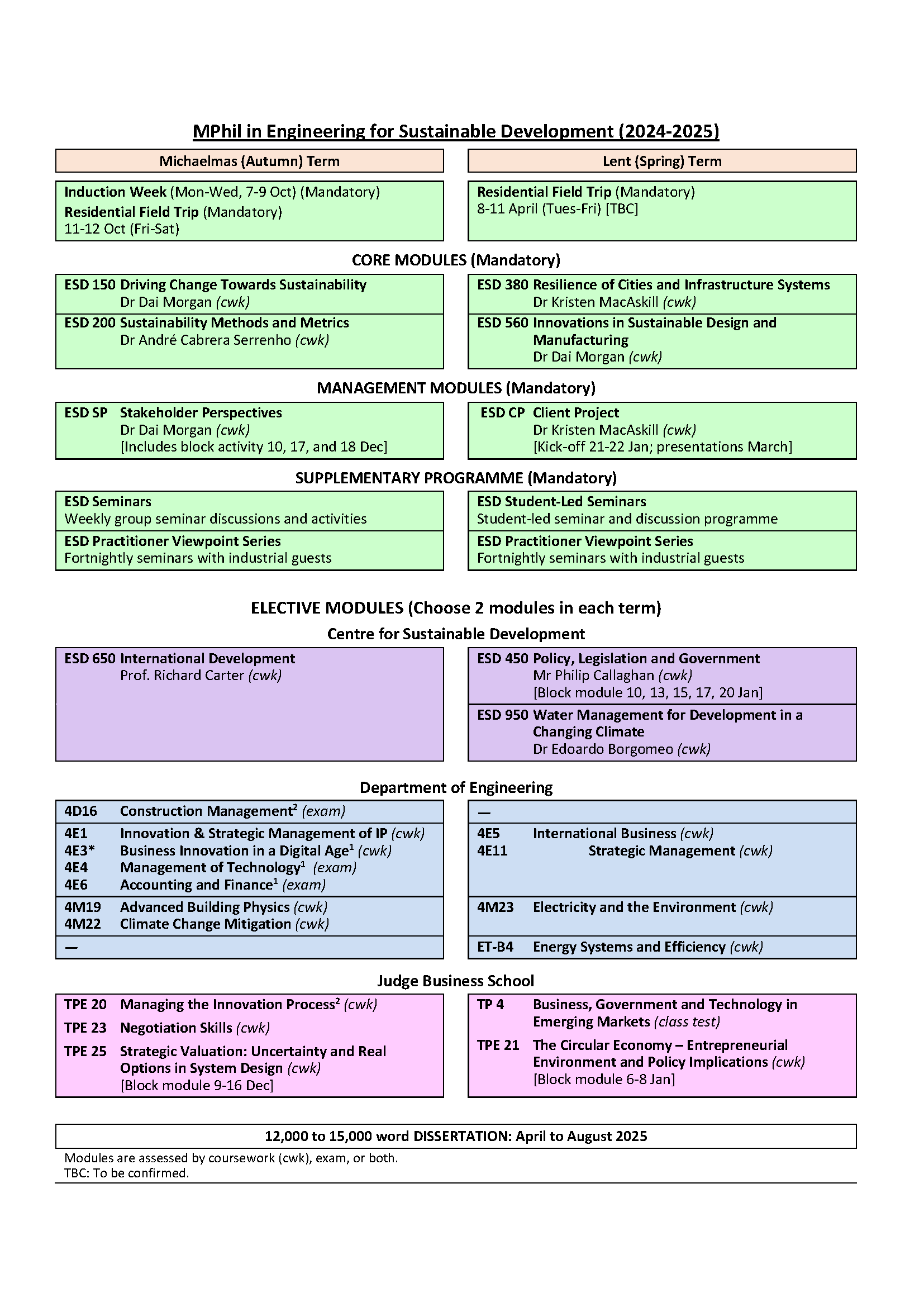ESD 200: Sustainability Methods and Metrics
Leaders: Dr André Cabrera Serrenho and Professor Richard Fenner
Timing: Michaelmas term 2020
Structure: Eight 2-hour sessions in weeks 1 to 8 plus coursework assignments
Synopsis
This module introduces systems thinking and some of the key methods used in sustainability and environmental assessment.
Learning objectives
By the end of the course, students will be able to
- Recognise the need for systems thinking and approaches to deal with the complexity of sustainability problems
- Select and apply suitable methods for the evaluation of sustainability in a variety of contexts and understand their limitations
- Critically assess the validity of claims based on the use of the most common sustainability methods.
Content
Sustainability principles and complexity:
- Definition of sustainability and complexity of sustainability assessment
- Dealing with complexity and the need for systems thinking and transdisciplinary approaches
- Key principles for a systems approach.
Systems Dynamics:
- Key principles of systems dynamics
- Using systems dynamics to understand future change (forecasting, scenarios, backcasting)
- Flows and stocks, dynamic equilibrium
- Feedback loops, causal loop diagrams, leverage points
- Examples of application and assessment of outcomes.
Life-Cycle Analysis (LCA):
- Key principles and application: goal and scope definition, inventory, impact assessment, interpretation of results; functional units; allocation procedures
- Criticisms and limitations
- Other LCA-based applications: life-cycle cost analysis and consequential LCA.
Carbon accounting and ecological footprints:
- The desire for environmental labelling
- Eco footprint metrics; limitations and criticism
- Carbon accounting: footprint principles, application, limitations and criticism.
Material flow analysis and environmental input-output analysis:
- Material Flow Analysis (MFA) as a tool for physical allocation of impacts
- Environmentally extended input-output analysis (EEIOA) as a tool for economic allocation of impacts
- Principles and examples of application; limitations and criticism.
Multiple-Criteria Decision Making:
- Complexity and multi-dimensionality of sustainability problems
- Multiple-Criteria Decision Analysis (MCDA) process: problem definition, modelling preferences, alternative evaluations, making recommendations
- MCDA techniques; Analytic Hierarchy Process (AHP)
- AHP: key principles and application
- Limitations and criticisms.
Valuation of environmental and ecosystem services:
- Neoclassical approaches to environmental and resource economics vs ecological economics
- Principles of ecological economics
- Ecosystem functions and valuation of ecosystem services: key principles and application
- Valuation methods of natural capital and ecosystem services.
Agent-based modelling:
- Key definitions and principles; what it does and when to use it
- Application examples
- Limitations and criticisms.
Assessment: 100% coursework
Indicative items (may vary from year to year): three submissions covering
- Application of systems thinking: causal loop diagram exercise
- Critical review of an application of a sustainability assessment method
- Application of MCDA using AHP.

